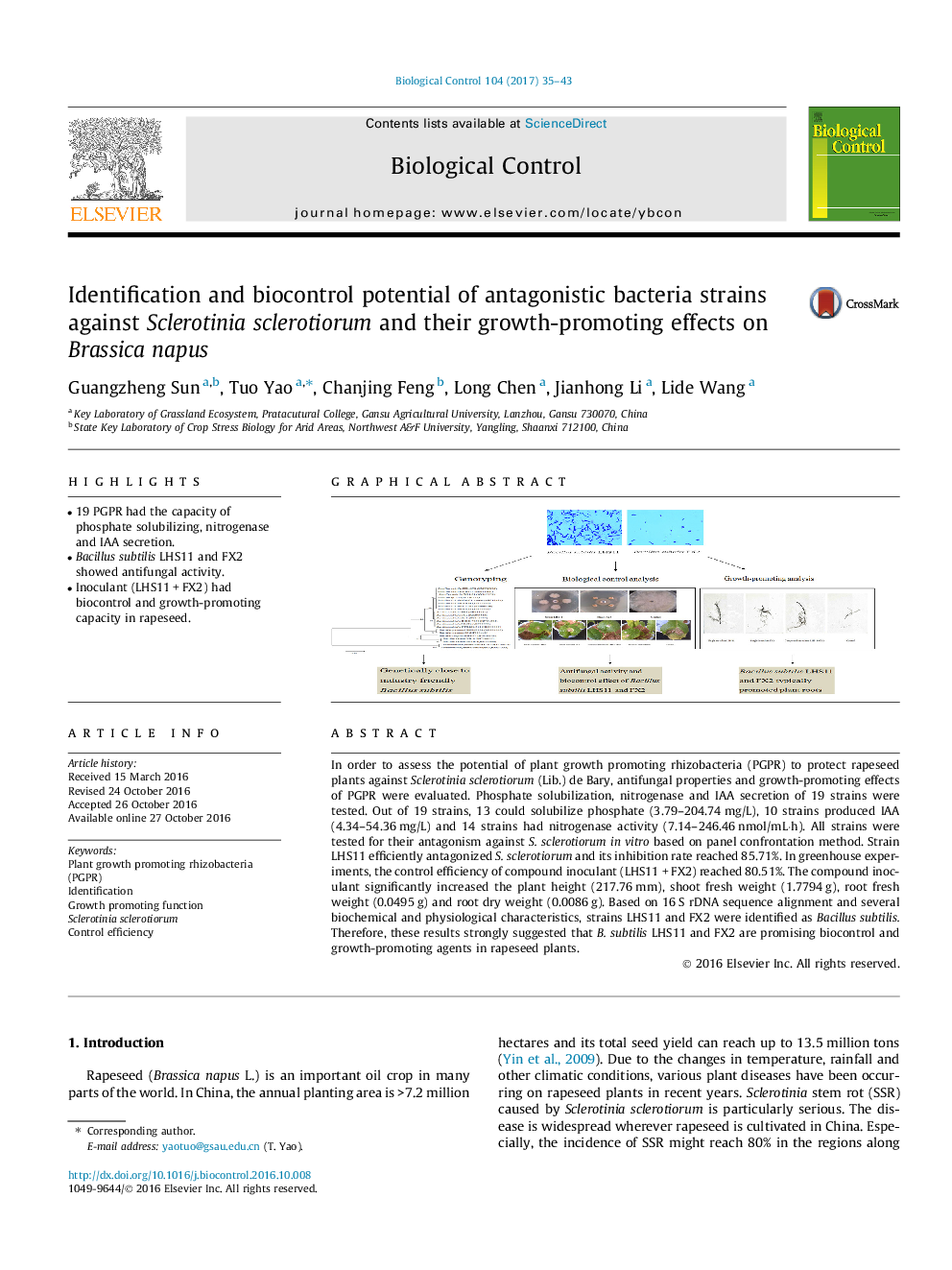| Article ID | Journal | Published Year | Pages | File Type |
|---|---|---|---|---|
| 4503524 | Biological Control | 2017 | 9 Pages |
•19 PGPR had the capacity of phosphate solubilizing, nitrogenase and IAA secretion.•Bacillus subtilis LHS11 and FX2 showed antifungal activity.•Inoculant (LHS11 + FX2) had biocontrol and growth-promoting capacity in rapeseed.
In order to assess the potential of plant growth promoting rhizobacteria (PGPR) to protect rapeseed plants against Sclerotinia sclerotiorum (Lib.) de Bary, antifungal properties and growth-promoting effects of PGPR were evaluated. Phosphate solubilization, nitrogenase and IAA secretion of 19 strains were tested. Out of 19 strains, 13 could solubilize phosphate (3.79–204.74 mg/L), 10 strains produced IAA (4.34–54.36 mg/L) and 14 strains had nitrogenase activity (7.14–246.46 nmol/mL·h). All strains were tested for their antagonism against S. sclerotiorum in vitro based on panel confrontation method. Strain LHS11 efficiently antagonized S. sclerotiorum and its inhibition rate reached 85.71%. In greenhouse experiments, the control efficiency of compound inoculant (LHS11 + FX2) reached 80.51%. The compound inoculant significantly increased the plant height (217.76 mm), shoot fresh weight (1.7794 g), root fresh weight (0.0495 g) and root dry weight (0.0086 g). Based on 16 S rDNA sequence alignment and several biochemical and physiological characteristics, strains LHS11 and FX2 were identified as Bacillus subtilis. Therefore, these results strongly suggested that B. subtilis LHS11 and FX2 are promising biocontrol and growth-promoting agents in rapeseed plants.
Graphical abstractFigure optionsDownload full-size imageDownload as PowerPoint slide
